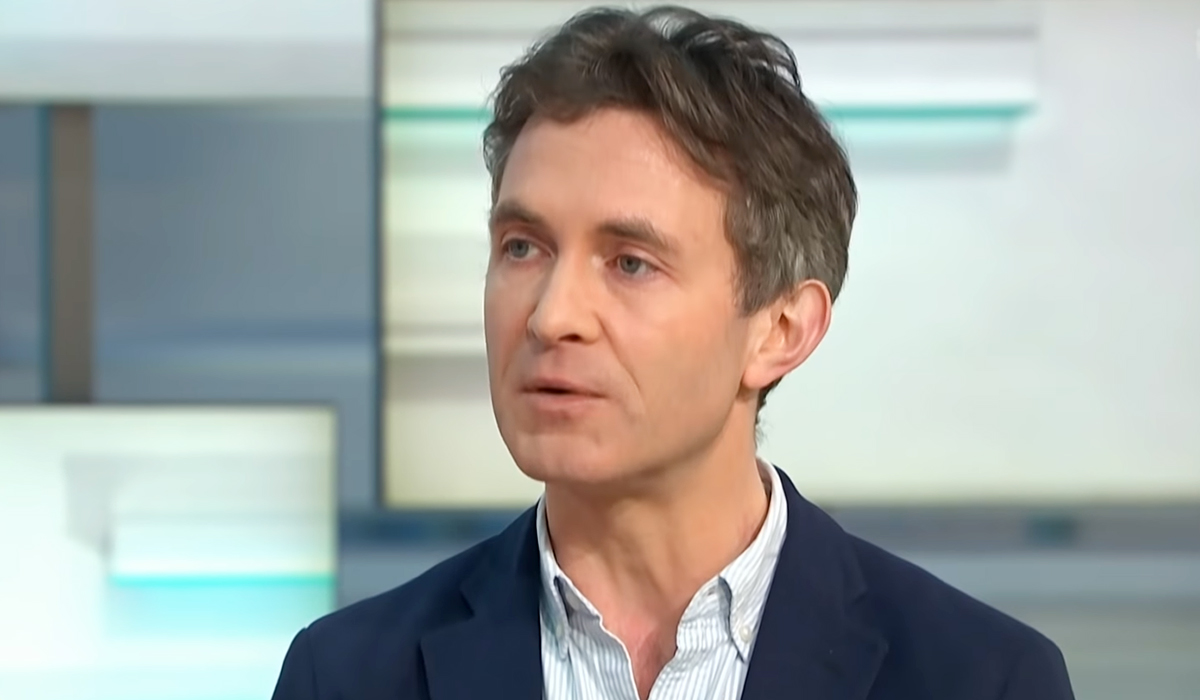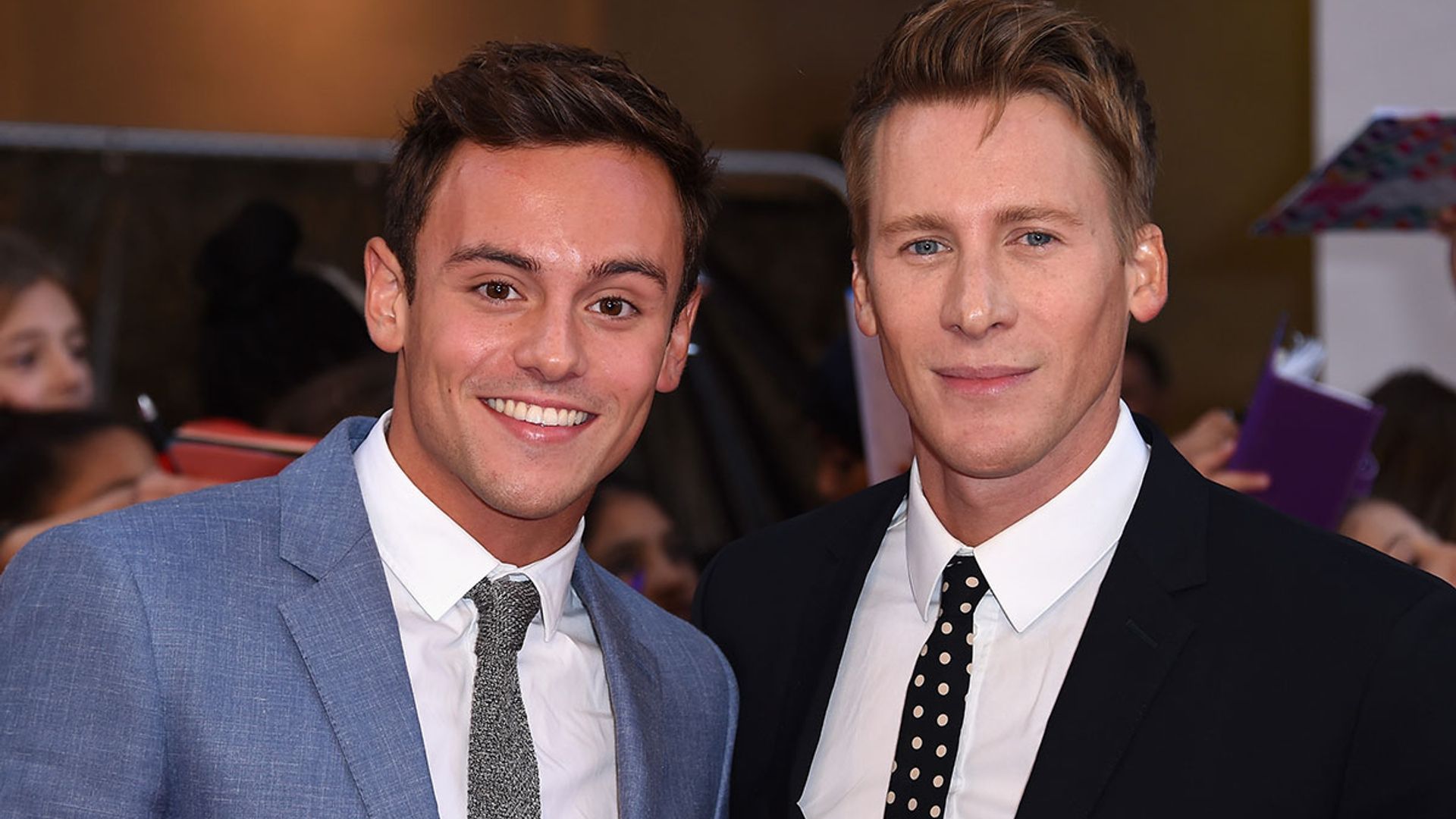In recent years, Douglas Murray has become a well-known figure in political and cultural discussions, often stirring controversy with his bold opinions and writings. As a prominent commentator, author, and director of the Centre for Social Cohesion, his views on various topics, including immigration, identity politics, and Islam, have ignited heated debates. However, one question that often arises in conversations about him is: "Is Douglas Murray gay?" This inquiry not only seeks to uncover his sexual orientation but also serves as a reflection of society's ongoing fascination with the personal lives of public figures.
In this article, we will explore Douglas Murray's life, his contributions to contemporary discourse, and the implications of his sexual orientation. The discussions surrounding his personal life often intertwine with his professional persona, making it essential to understand the context of his views and beliefs. As we dissect his biography and delve into the question of whether Douglas Murray is gay, we aim to provide a nuanced perspective that goes beyond mere labels.
As we examine Douglas Murray's life, we will also address the broader cultural implications of his identity and how it intersects with the ongoing debates about sexuality, politics, and societal norms. The inquiry into "Douglas Murray gay?" is not just about the individual but reflects larger questions about acceptance, representation, and the complexities of modern identity.
Who is Douglas Murray? A Brief Biography
Douglas Murray was born on July 16, 1979, in London, England. He is a British author, journalist, and political commentator known for his outspoken views on various social and political issues. He attended the prestigious Eton College and later studied History at Magdalen College, Oxford. Murray has authored several books, including "The Strange Death of Europe" and "The Madness of Crowds," which have garnered both acclaim and criticism.
What are Douglas Murray's Key Contributions?
Murray's contributions to contemporary political discourse are significant. He is a frequent speaker at events, engaging in debates on topics such as immigration, national identity, and political correctness. His provocative arguments often challenge mainstream narratives, making him a polarizing figure in public discussions. Some of his notable contributions include:
- His book "The Strange Death of Europe," where he critiques the impact of mass immigration on European society.
- His appearance on various media platforms, including news channels and podcasts, where he articulates his views on cultural and political issues.
- His role as a co-founder of the Henry Jackson Society, a think tank that advocates for a strong, interventionist foreign policy.
What is Douglas Murray's Personal Life Like?
| Attribute | Detail |
|---|---|
| Name | Douglas Murray |
| Date of Birth | July 16, 1979 |
| Place of Birth | London, England |
| Education | Eton College, Magdalen College (Oxford) |
| Occupation | Author, Journalist, Political Commentator |
| Notable Works | The Strange Death of Europe, The Madness of Crowds |
| Affiliations | Henry Jackson Society |
Is Douglas Murray Open About His Sexual Orientation?
When discussing the question, "Is Douglas Murray gay?" it is essential to note that he has been open about his sexual orientation in various interviews and writings. Murray identifies as a gay man and has discussed his experiences and the challenges that come with being a member of the LGBTQ+ community in a predominantly conservative environment. His openness about his sexuality adds another layer to his public persona, as it intersects with his political views and critiques of identity politics.
How Does Douglas Murray's Sexual Orientation Affect His Work?
Murray's sexuality plays a significant role in shaping his perspectives on various issues, particularly those related to LGBTQ+ rights and representation. While he often critiques aspects of modern identity politics, he also advocates for the rights of LGBTQ+ individuals. This duality in his views raises questions about the complexities of identity within political discourse. Some key points to consider include:
- His criticism of certain aspects of the LGBTQ+ movement, which he believes can sometimes become overly politicized.
- His support for same-sex marriage and other rights for LGBTQ+ individuals, which aligns with his personal experiences.
- The challenges he faces as a gay man in conservative circles, where his views may not always be welcomed.
What Do Critics Say About Douglas Murray's Views on LGBTQ+ Issues?
Douglas Murray's views on LGBTQ+ issues have sparked both support and criticism. While some appreciate his candid discussions on the challenges faced by the LGBTQ+ community, others argue that his critiques of identity politics can undermine the progress made in the fight for equality. Critics often point to the following concerns:
- His stance on political correctness, which some believe diminishes the legitimacy of LGBTQ+ struggles.
- His comments on gender identity, which have drawn ire from activists who advocate for a more inclusive understanding of gender.
- The perception that his views may inadvertently align with conservative agendas that oppose LGBTQ+ rights.
What Impact Does Douglas Murray Have on Public Discourse?
Murray's impact on public discourse is profound, particularly in the context of discussions surrounding identity and sexuality. His ability to articulate controversial viewpoints has earned him a significant following, while also attracting criticism from various quarters. As a public intellectual, he has contributed to debates that challenge conventional wisdom and provoke thought on complex societal issues. Some notable impacts include:
- Encouraging open discussions about immigration and national identity, which often intersect with notions of cultural belonging.
- Highlighting the complexities of being a gay man in conservative spaces, fostering dialogue on LGBTQ+ representation.
- Influencing the way political discourse engages with issues of identity, particularly in the context of free speech and expression.
How Can We Understand Douglas Murray Beyond His Sexual Orientation?
To fully grasp Douglas Murray's contributions and perspectives, it is crucial to understand him as more than just a figure defined by his sexual orientation. His work encompasses a wide range of topics, and his identity is just one aspect of a multifaceted persona. By examining his writings, speeches, and public engagements, we can gain insight into his complex views on society, culture, and politics.
What Can We Learn from Douglas Murray's Journey?
The question "Is Douglas Murray gay?" ultimately opens up a broader conversation about identity and societal perceptions. His journey as a gay man navigating the political landscape offers valuable lessons on authenticity, courage, and the importance of engaging in difficult conversations. As society continues to grapple with issues of identity and representation, figures like Murray remind us of the complexities inherent in these discussions and the need for open-mindedness in our approaches.
In conclusion, while the inquiry into "Douglas Murray gay?" serves as a starting point for discussions about his personal life, it also prompts deeper reflections on the intersections of identity, politics, and culture. Understanding Murray's contributions and challenges allows for a more nuanced appreciation of the role he plays in contemporary discourse. By examining his life and work, we can better navigate the intricacies of identity in today's world.
- Unveiling The Age Of Daniil Kvyat The Rising Star Of Formula 1
- Understanding Beittany Griner A Deep Dive Into Identity


